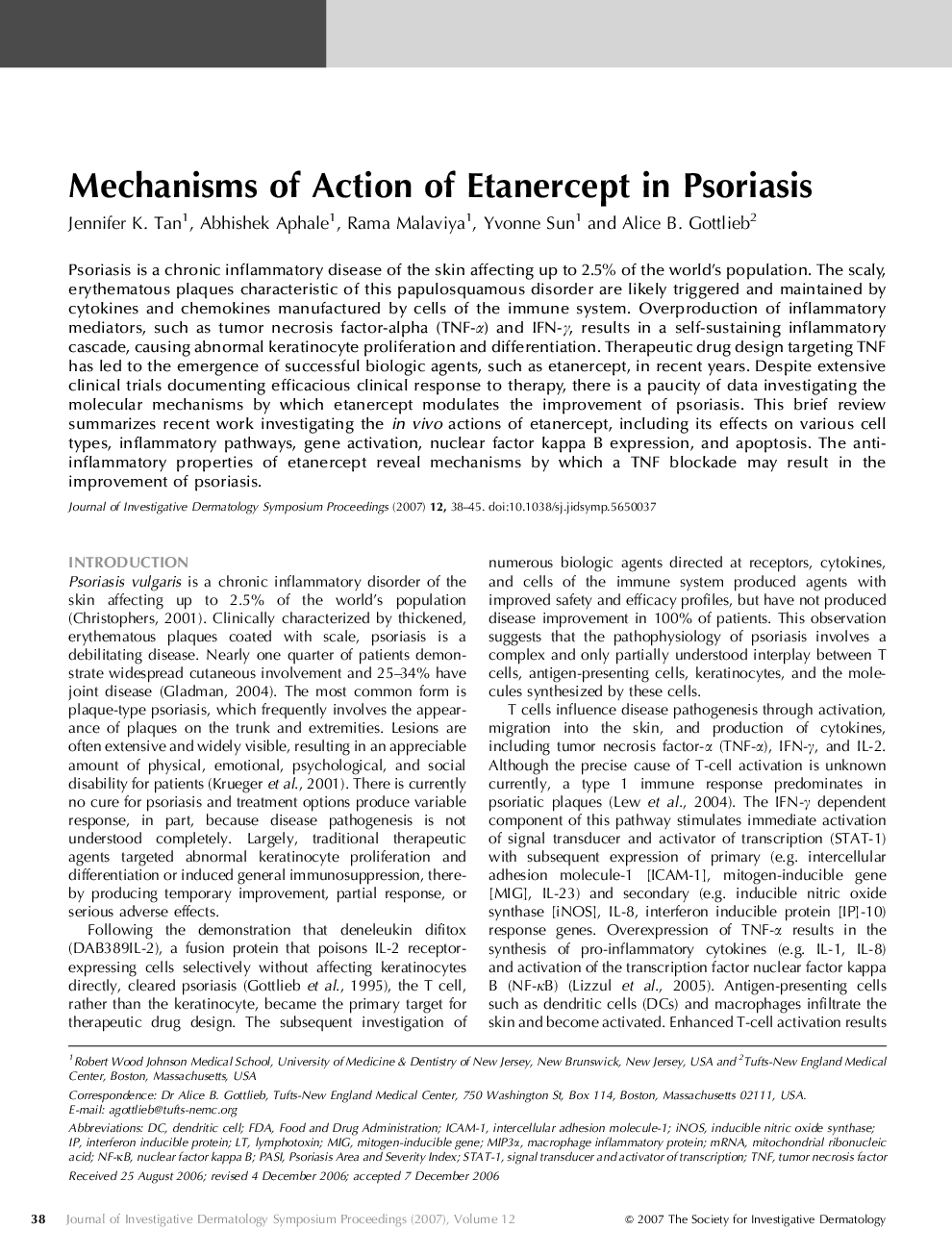| Article ID | Journal | Published Year | Pages | File Type |
|---|---|---|---|---|
| 3218996 | Journal of Investigative Dermatology Symposium Proceedings | 2007 | 8 Pages |
Psoriasis is a chronic inflammatory disease of the skin affecting up to 2.5% of the world's population. The scaly, erythematous plaques characteristic of this papulosquamous disorder are likely triggered and maintained by cytokines and chemokines manufactured by cells of the immune system. Overproduction of inflammatory mediators, such as tumor necrosis factor-alpha (TNF-α) and IFN-γ, results in a self-sustaining inflammatory cascade, causing abnormal keratinocyte proliferation and differentiation. Therapeutic drug design targeting TNF has led to the emergence of successful biologic agents, such as etanercept, in recent years. Despite extensive clinical trials documenting efficacious clinical response to therapy, there is a paucity of data investigating the molecular mechanisms by which etanercept modulates the improvement of psoriasis. This brief review summarizes recent work investigating the in vivo actions of etanercept, including its effects on various cell types, inflammatory pathways, gene activation, nuclear factor kappa B expression, and apoptosis. The anti-inflammatory properties of etanercept reveal mechanisms by which a TNF blockade may result in the improvement of psoriasis.
